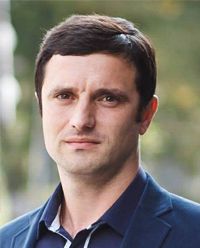CAPATINA Carolina
PhD student, Faculty pf Law, State University of Moldova
Superior Council of Magistracy,
main specialist with the legislation, protocol and communication Service
(Chisinau, the Republic of Moldova)
JEL Classification: K40
Universal Decimal Classification: 347.962
ABSTRACT:
THE PRINCIPLE OF INTERDEPENDENCE OF JUDGES IN THE LIGHT OF THE FINDINGS OF THE EUROPEAN COURT OF HUMAN RIGHTS IN THE CASE OF OLEKSANDR VOLKOV VS. UKRAINE
The independence of justice is a fundamental principle that lies at the heart of any fair and functioning legal system. It serves as a cornerstone of democracy and the rule of law, ensuring that justice is dispensed impartially, without undue influence or bias. At its core, the independen ce of justice refers to the separation of the judiciary from external pressures, be they political, economic, or societal. In a society governed by an independent judicial system, judges are free from interference, allowing them to make decisions based sol ely on the law and the merits of each case. This autonomy not only safeguards the rights and liberties of individuals but also fosters public trust in the legal process. Throughout history, the struggle for judicial independence has been a continuous endea vor, shaped by
legal reforms, constitutional provisions, and international agreements. Yet, challenges persist, and the pursuit of a fully independent judiciary remains a vital objective for societies worldwide. The controversial case of Oleksandr Volkov v . Ukraine, revealed a central problem of the entire human rights protection system the independence of the judiciary, and later served as a reason for a considerable change, reforming the justice system in the country, as well as an example for others.
Keywords: independence of justice, international standards, judicial independence guarantees, Superior Council of Magistracy, ECHR


